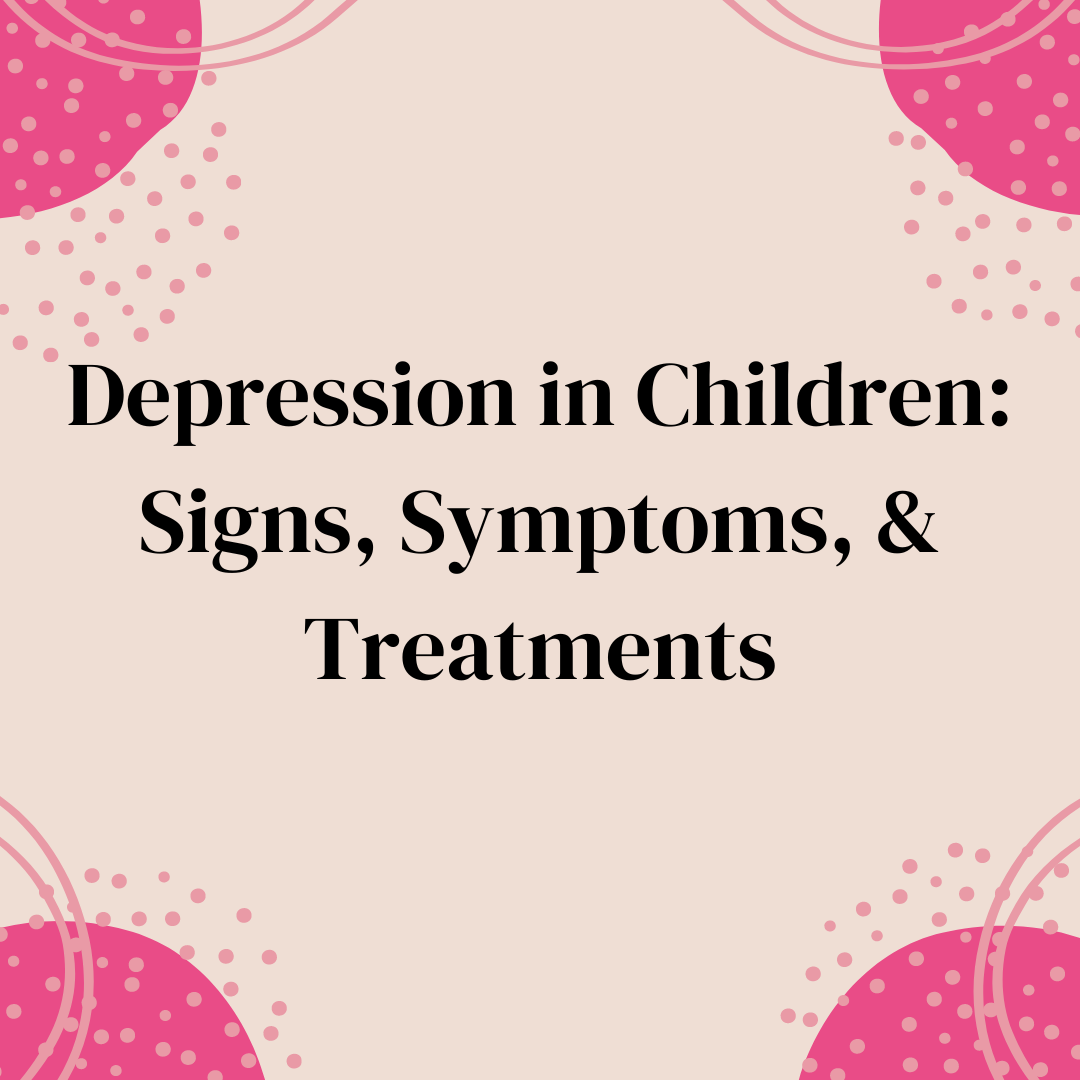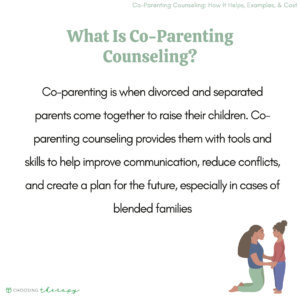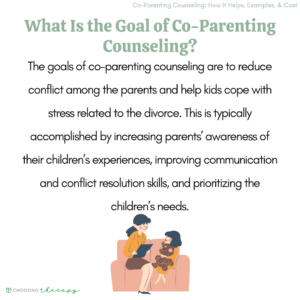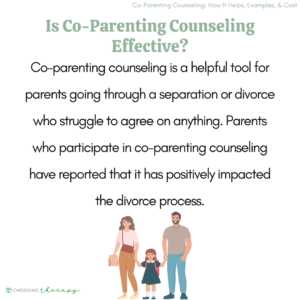Co-parenting counseling helps families who are going through a separation or divorce. The goals are to improve communication and conflict resolution skills and develop a co-parenting plan for the future that is in the best interest of the child or children. A family court judge may mandate families to attend this kind of counseling, or they can go on their own accord.
Are you obsessively asking yourself “Am I a good parent?” Most parents occasionally ask themselves the question. However, if you are constantly worried about being a good parent and cannot control your fears, you might have OCD. Learn More
What Is Co-Parenting Counseling?
Co-parenting is when divorced and separated parents come together to raise their children. While some parents transition easily, others struggle with conflict, miscommunication, or a total lack of communication. Co-parenting provides them with tools and skills to help improve communication, reduce conflicts, and create a plan for the future, especially in cases of blended families.1
Core Concepts of Co-parenting Counseling
Co-parenting counseling provides separated or divorced parents with education and skills to help raise their children together.2 This approach differs from couples or family therapy in that the focus is on the child(ren).3 Co-parenting counseling also concentrates on the future rather than the past. It seeks to help parents learn to work together to talk to their children about divorce, raise them as a united front, and prevent future problems.
Parents may decide to attend co-parenting counseling together. In other cases, a judge may order attendance. This may happen if couples cannot work well together, as in the cases of overly controlling ex-partners. Unlike other types of ongoing therapy, co-parenting counseling is typically brief. Parents may stop when the judge or therapist feels they’ve improved and reached their goals.
What Is the Goal of Co-Parenting Counseling?
The goals of co-parenting counseling are to reduce conflict among the parents and help kids cope with stress related to the divorce.4 This is typically accomplished by increasing parents’ awareness of their children’s experiences, improving communication and conflict resolution skills, and prioritizing the children’s needs.
Families who participate in co-parenting counseling tend to experience less conflict and more positive feelings toward an ex-partner, helping to increase the likelihood of solving issues without court involvement.4
Specific goals will vary depending on each family’s unique situation and needs. Couples entering co-parenting counseling on their own without a requirement from a judge can determine their own goals with the input of the counselor. Couples who are mandated by a judge may have predetermined goals and be required to attend a specific number of sessions.
Who Chooses the Co-Parenting Counselor?
If co-parenting counseling is mandated by a judge, then the judge will likely encourage the parents to find a counselor together. If the parents are unable to agree, then the judge may decide on one for them. Parents who are seeking co-parenting counseling on their own accord should also agree on a counselor together. It’s important for both parties to feel comfortable since counseling requires sharing personal experiences.
Help For Parents Neuropsychological Testing For Children (including evaluations for Autism Spectrum Disorder, ADHD and Learning Disorders) Get answers in weeks, not months. Bend Health provides a complete report with in-depth findings, reviews with your schools, and a clinical diagnosis (if applicable). Learn more Online Therapy & Coaching (ages 1 -17) Bend Health is a virtual mental healthcare provider caring for kids, teens, and their families. Many insurance plans are accepted. Learn More Cooper – Expert Parenting Support Live, Weekly Parent Coaching – Immediate solutions to your most pressing challenges & Small Monthly Group Sessions with like-minded parents. Our experts have 10 years of experience in child development and are parents themselves! Sign up now to get 2 Months Free!
What Can Co-Parenting Counseling Help With?
Co-parenting counseling can help with any issues involving the parents’ children. A counselor can teach parents healthy communication and conflict resolution skills, helping them express disagreement respectfully and work toward compromise. Counselors can also highlight unhealthy communication patterns and identify ways to improve them.
Parents in co-parenting counseling can also benefit from developing a schedule and agreeing on specific responsibilities. They may have different ideas about what co-parenting should look like, so a counselor will explore each person’s expectations and work toward agreement. Counselors may also anticipate possible problems and brainstorm ways to handle them before they occur.
Co-parenting counselors provide parenting skills, like supporting a child through a divorce and managing behavioral problems. Parents going through a separation or divorce can benefit from education on how their children may feel and ways to help them cope.
Common Types of Co-Parenting Counseling
A co-parenting counselor’s approach usually involves teaching important skills and helping parents create and execute a plan for their changing family.5 They may focus on communication skills, conflict resolution, or creating a co-parenting plan. If the counselor feels that the parents or child would benefit from additional support, they may also provide a referral for more therapy.
Focus On Communication
Co-parenting counselors evaluate how parents communicate, identify positive and negative aspects, and teach skills to improve. For example, parents may learn how to manage their frustrations, keep their focus on the children, and use “I” statements rather than make accusations.6 They may also learn how to speak respectfully with one another through commonly used mediums like text messages and email.
Focus On Conflict Resolution
Co-parenting counseling will help parents anticipate possible conflicts, such as custody arrangements on holidays and birthdays, and learn skills for resolving them. If a difference of opinion does occur, parents will be prepared to express how they feel respectfully and work toward common resolutions in the best interest of their child(ren).
Focus On Creating a Co-parenting Plan
Counseling provides a supportive environment to develop a plan and anticipate potential obstacles. For example, parents can discuss navigating custody, medical appointments, and school functions.6 The counselor might help them create a calendar for the upcoming year and discuss how holidays, birthdays, and other events will be handled.
Co-Parenting Counseling Examples
Here are three case examples of how co-parenting counseling could play out:
Parenting Disagreements
A judge has mandated a family to attend co-parenting counseling. They have two children together, ages 4 and 2. The parents have not been able to agree on how to raise their children and find themselves constantly arguing.
A co-parenting counselor working with this family might start by identifying areas of disagreement. They may teach the parents healthy communication skills like active listening and using “I” statements to express themselves. Sessions could involve role-playing so the parents can practice using the skills outside of sessions.
Supporting a Child Through a Separation
A same-sex couple comes in on their own accord to discuss how to help support their child, age 10, through their separation. The couple is not legally married and would like to avoid involving the family court system. They want to figure out how to co-parent with their child’s best interests in mind.
A co-parenting counselor may start by identifying each partner’s expectations for the family structure following separation. They may help them come to a mutual understanding and compromise on areas of disagreement, establish a co-parenting plan, and brainstorm possible challenges and how to handle them.
Spouse Worried About What’s Being Said to the Children
A judge refers a couple to co-parenting counseling during the middle of their contentious divorce. The mother is concerned that her soon-to-be ex-husband is talking negatively about her to her children.
A co-parenting counselor may encourage each parent to share their concerns and assess whether disparaging comments are being made. They would look for signs of parental alienation (i.e., when one parent attempts to turn their child against the other) and communicate those findings to the judge.7
The counselor would also teach the couple communication and conflict resolution skills and establish guidelines around talking about the other parent in front of the child. The couple would be educated on how making negative comments about a parent causes harm to the child.
Are you obsessively asking yourself “Am I a good parent?” Most parents occasionally ask themselves the question. However, if you are constantly worried about being a good parent and cannot control your fears, you might have OCD. Learn More
Cost of Co-Parenting Counseling
Health insurance will not cover co-parenting counseling if a judge orders it, and the court order typically states who pays for treatment. For example, a court may stipulate that both mother and father are responsible for 50% or require one parent to cover most or all costs.
The cost of co-parenting counseling may range from $100 to $250 per session, depending on the counselor’s qualifications, experience, and geographical location. Providers who hold a master’s degree (MA or MS) may charge around $100 to $150 per session, while those with a doctorate (PhD or PsyD) may charge $150 to $250 per session.
People seeking co-parenting counseling on their own without a court referral may be able to use health insurance to pay. This will depend on whether the counselor can diagnose one of the parents with a mental health condition since this is required for insurance reimbursement. If insurance covers co-parenting counseling, you may be responsible for a copay, deductible, or coinsurance fee.
How to Find a Co-parenting Counselor
For couples who are required to attend co-parenting by the court, a judge may provide a referral for a co-parenting counselor or advise them to find a counselor on their own. To find a co-parenting counselor, you can search for counselors and therapists licensed in your state who specialize in working with divorce and parenting issues.
Start your search online through your health insurance company or an online therapist directory, which allows you to customize your search to find therapists who work with specific issues.
Who Can Offer Co-parenting Counseling?
Co-parenting counselors are licensed professionals with an educational background in therapy, counseling, social work, or psychology. This includes social workers, marriage and family therapists, professional counselors, and psychologists. These providers complete a master’s or doctorate and have a certain number of supervised hours of experience.
While there’s no co-parenting counselor certification, most co-parenting counselors have specialized training in divorce mediation, parenting education, and/or family therapy.
Questions to Ask a Potential Family Therapist
You may wonder what to expect and how to prepare for co-parenting counseling. Don’t hesitate to write your questions down beforehand and ask the counselor before or during your first appointment.
Below are questions to ask before beginning co-parenting counseling:
- How can I prepare for my first session/subsequent sessions?
- How often will we meet for counseling?
- How long will co-parenting counseling last for?
- What are the goals for counseling?
- Will there be homework assignments between sessions?
- Are my sessions confidential or will my information be shared with a judge?
Your child can suffer from YOUR mental health issues! When you get treatment, you are helping your children. BetterHelp has over 20,000 licensed therapists who provide convenient and affordable online therapy. BetterHelp starts at $65 per week. Take a Free Online Assessment and get matched with the right therapist for you.
What to Expect at Your First Session
The first session is typically an evaluation where a counselor will ask each parent questions about the divorce, their children, and their hopes and expectations for the future. They may ask about the couple’s relationship, reasons for divorcing, and typical approaches to parenting. This helps give the counselor an idea of the family dynamics and what would be most helpful to focus on.
The counselor will also discuss confidentiality and its limits. If you are mandated to attend by a judge, they will explain what information will be shared and what will be kept private. Certain information, like disclosing child abuse, may also require the counselor to break confidentiality. They will also provide opportunities to ask questions and discuss the length, frequency, and goals of counseling.
Is Co-Parenting Counseling Effective?
Co-parenting counseling is a helpful tool for parents going through a separation or divorce who struggle to agree on anything. Parents who participate in co-parenting counseling have reported that it has positively impacted the divorce process.8
Below are possible benefits of co-parenting counseling:
-
- Enhanced parental well-being2
- Improved relationship between co-parents2
- Better cooperation among co-parents8
- Less need for legal involvement during divorce4
Co-Parenting Vs. Other Counseling Options
Co-parenting counseling differs from other types of therapy because it focuses on the child(ren) first. Other counseling types may be more helpful for couples considering a divorce or struggling in their relationship. These approaches may even be used in conjunction with co-parenting counseling.
Co-Parenting Counseling Vs. Divorce Counseling
Divorce counseling helps couples considering or going through divorce. This type of counseling helps couples transition through divorce as smoothly as possible and work through issues related to their divorce so each partner can cope effectively.
Co-Parenting Counseling Vs. Family Therapy
Family or couples therapy helps families understand and work through relationship issues. These therapies aim to improve communication and conflict resolution, establish healthy co-parenting boundaries, and foster empathy and understanding between family members. Family or couples counseling is typically sought before a couple decides to divorce.
Final Thoughts
Co-parenting counseling can be beneficial for families navigating divorce or separation. This approach can help parents learn to support their children, improve communication, and foster healthy post-separation family dynamics.
To help our readers take the next step in their mental health journey, Choosing Therapy has partnered with leaders in mental health and wellness. Choosing Therapy is compensated for marketing by the companies included below. Neurological Testing Neuropsychological Testing For Children (including evaluations for Autism Spectrum Disorder, ADHD and Learning Disorders). Get answers in weeks, not months. Bend Health provides a complete report with in-depth findings, reviews with your school, and a clinical diagnosis (if applicable). Learn More Online Therapy & Coaching (ages 1 -17) Bend Health – is a virtual mental healthcare provider caring for kids, teens, and their families. Many insurance plans are accepted. Learn More OCD and Children NOCD – What are the signs of OCD in children? OCD involves unwanted intrusive thoughts, images, or urges (obsessions) that create anxiety, which the child attempts to relieve by performing rituals (compulsions). These rituals can be overt and noticeable (e.g. handwashing, counting, avoiding objects, rearranging materials, etc.) or can be less noticeable or mental (e.g. silently analyzing, reiterating phrases, counting, etc.). To find out if your child has OCD and treatment options, schedule a free 15 minute call with NOCD. Online Therapy (For Parents) BetterHelp – Get support and guidance from a licensed therapist. BetterHelp has over 20,000 therapists who provide convenient and affordable online therapy. Complete a brief questionnaire and get matched with the right therapist for you. Get Started Parenting Support Cooper – Live, Weekly Parent Coaching – Immediate solutions to your most pressing challenges & Small Monthly Group Sessions with like-minded parents. Our experts have 10 years of experience in child development and are parents themselves! Sign up now to get 2 Months Free!Additional Resources
How to Find & Choose the Right Therapist for Your Child Discovering and selecting the right therapist for your child often comes down to two things: research and persistence. Be willing to put in the time and effort to call around to different therapists or therapy organizations in your area. Read through therapist profiles to see if their style, approach, and expertise resonate with you and your child.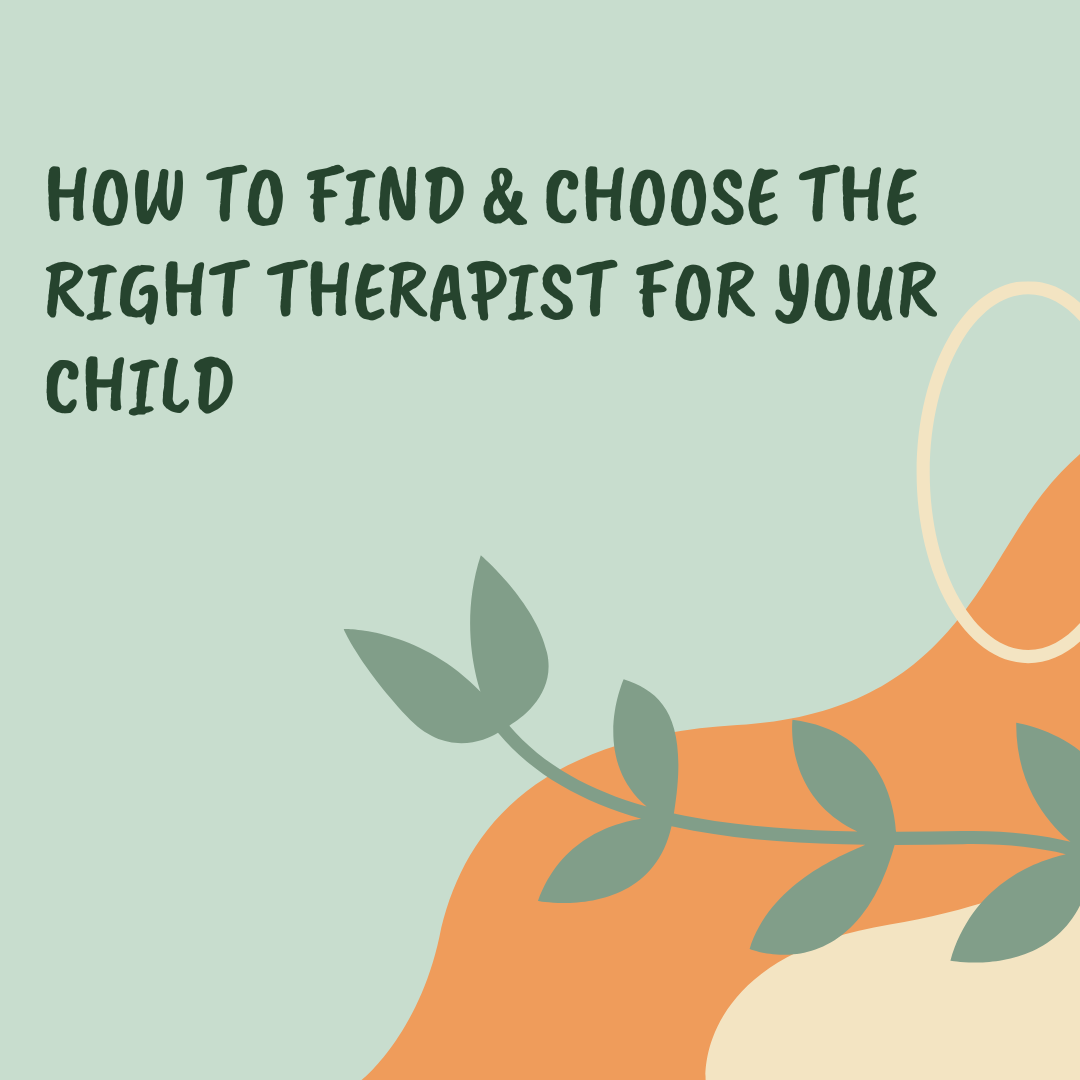
Depression in Children: Signs, Symptoms, & Treatments If you or someone you know is concerned about symptoms related to depression, seeking professional help from a mental health provider is highly recommended. Licensed professional counselors, social workers, psychologists, or psychiatric medication prescribers are able to determine whether a person is experiencing depression and the best methods of treatment.